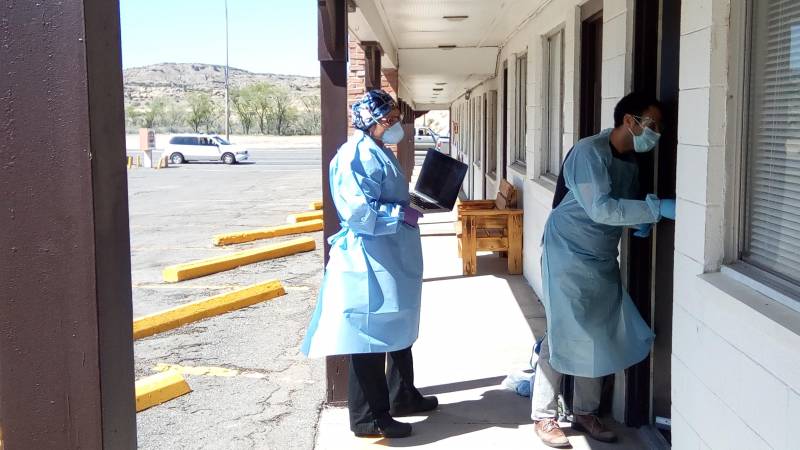Healthcare workers from around California, including 35 doctors and nurses from UCSF, are caring for patients in border towns surrounding the Navajo Nation. More than 5,000 people have tested positive for the coronavirus, and the illness has killed 167 individuals on the nation's largest Native American reservation.
UCSF doctor Aylin Ulku has been caring for patients recovering or quarantining in motel rooms in Gallup, New Mexico on the edge of the reservation. She fears the virus will leave a lasting impact on the community's culture and memory as elders who carry the Navajo's oral history pass away.
"I don't think there's a single family that I have met that hasn't been touched by death from the coronavirus," Ulku says. "There is an enormous amount of fear and an enormous amount of anxiety from community members who are too afraid to go home or their family members are too afraid to let them return."
The Navajo Nation, which extends into Arizona, New Mexico and Utah, has the highest per capita rate of COVID-19 cases in the United States, surpassing even New York state. By comparison, even though San Francisco's population is five time larger, it has only seen one fifth as many deaths.
The illness is spreading rapidly across the reservation where multi-generational housing is common and a third of homes do not have running water or electricity.

